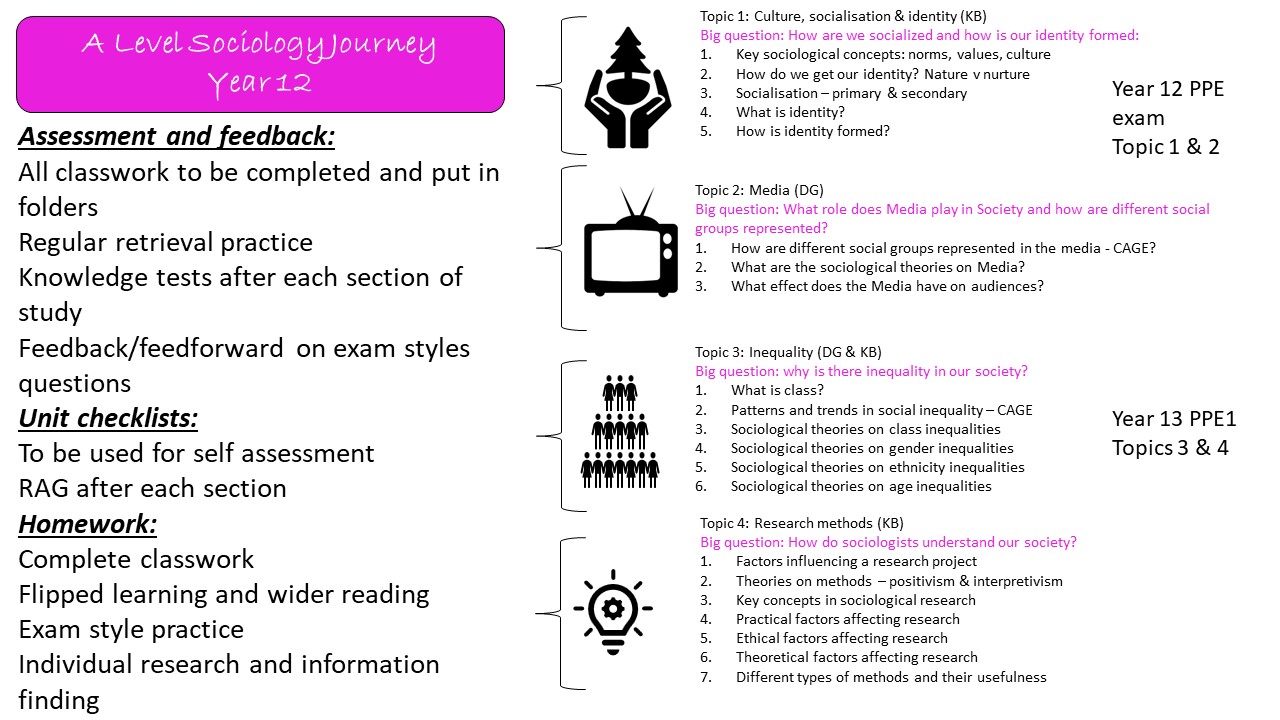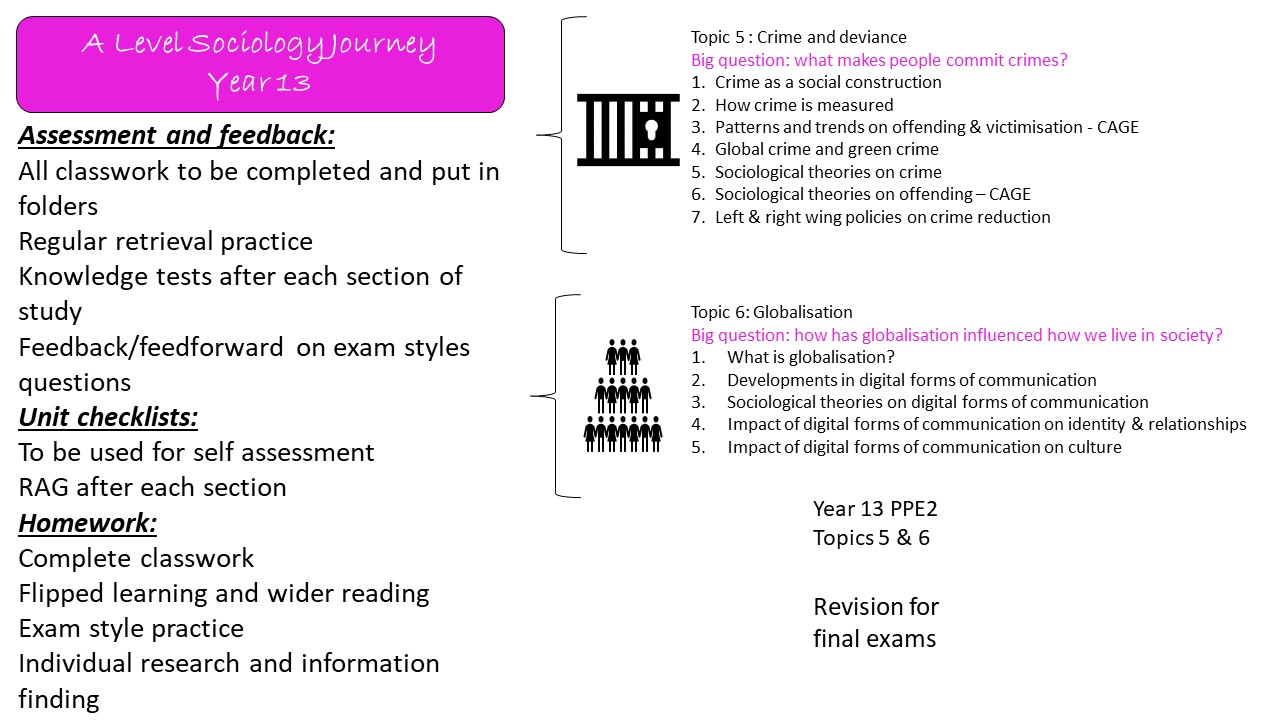Sociology
Vision
Sociology at Piggott aims to help students to:
- Develop an understanding of the interrelationships between individuals, groups, institutions and societies.
- Analyse critically the nature and sources of information and to base reasoned judgements and arguments on evidence.
- Organise and communicate their knowledge and understanding in different and creative ways, and reach substantiated judgements.
- Appreciate the significance of theoretical and conceptual issues in debate
- Understand and evaluate methodology and a range of research methods
- Develop skills that enable them to focus on their personal identity, roles and responsibilities within society
- Develop a lifelong interest in social issues.
Throughout the A Level Sociology course, all students will have to focus on the following;
A deeper understanding of the world around them and then reflection on social issues that are often relevant to their own social experiences. They will discuss a wide range of contemporary issues, for example ‘What impact do digital forms of communication have on social relations?’ and ‘How do sociologists investigate inequality in society?’
Acquiring knowledge and a critical understanding of social processes and changes, they will have the opportunity to develop a broad set of desirable key skills, including the ability to analyse and formulate clear, logical arguments with scope for extensive evaluation from a range of theoretical perspectives.
Intent
Our A Level in Sociology aims to inspire students to reflect upon the world we live in, fostering an understanding of the inter-relationships between individuals, groups, institutions and societies. It enables students to develop critical thinking and appreciate theoretical and conceptual issues.
Sociology provides students with the exciting opportunity to gain a deeper understanding of the world around them and reflect on social issues that are often relevant to their own social experiences.
It opens up fascinating discussions, for example ‘nature versus nurture?’, ‘how do sociologists investigate inequality in society?’ and ‘why do people commit crime?’
Students acquire knowledge and a critical understanding of contemporary society and social changes. They have the opportunity to develop a broad set of desirable key skills, including the ability to analyse and formulate clear, logical arguments, with scope for extensive evaluation from a range of theoretical perspectives.
They develop strong critical thinking skills and are able to consider issues with a global outlook. This will be of huge benefit to students moving forward, whether this is in further education, the workplace or society in general.
The course content has been designed to inspire, nurture and develop learners. Popular topics such as identity, mass media and crime and deviance have been selected by the Piggott Sociology Department. A strong global dimension is included to reflect contemporary society.
Sociology at Piggott develops critical and reflective thinking with a respect for social diversity and encourages an awareness of the importance of social structure and social action in explaining social issues.
Students at Piggott are encouraged to develop their own sociological awareness through active involvement with the contemporary social world. Students are encouraged to be inspired, moved and changed by following a broad, coherent, satisfying and worthwhile course of study and to reflect on their own experience of the social world to enhance their ability to play informed roles within different social contexts.


